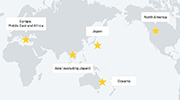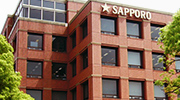Risk Management
Basic Policy on Risk Management
The Sapporo Group has established a structure for managing risks inherent in the decision making and business execution processes that are essential for carrying out its operations.The Group has also set up a crisis management structure for times of emergency. The Group will draw on these structures to put into motion a PDCA cycle.
Sapporo Holdings is working to conduct sound corporate management and improve corporate value in a sustainable manner by strengthening Group-wide risk and crisis management structures. In addition, the Company recognizes the possibility of new risks occurring as it promotes strategies aimed at realizing the "Mid-term Management Plan 2023-26". Accordingly, the Company and its subsidiaries are carrying out appropriate risk and crisis management. In particular, the Company is focusing on the following three tasks.
- Preventing the loss of life and maintaining safety
- Pursuing quality
- Thoroughly implementing compliance
Risk Management Structure
The Sapporo Group has built the risk management structure described below in order to properly manage risks of loss
(1) Management of the risks inherent in important decision making or business execution
The risks inherent in important decision making or business execution in the course of management of corporate affairs are to be managed by the Management Council. Management departments such as Corporate Planning, General Affairs, Finance, and Legal individually analyze the reviews, reported items, and other information in the Management Council for potential risks, and report the results to the Council.
(2) Crisis management
If an emergency situation occurs or a fact that might lead to an emergency situation is discovered that requires crisis management, the Group Risk Management Committee (hereafter referred to as the "GRM Committee"), in cooperation with the risk management organizations of subsidiaries, considers countermeasures including information disclosure and handles the crisis quickly and appropriately.
*Reference:Corporate governance structure
Sapporo Group’s risk management flow (general view)
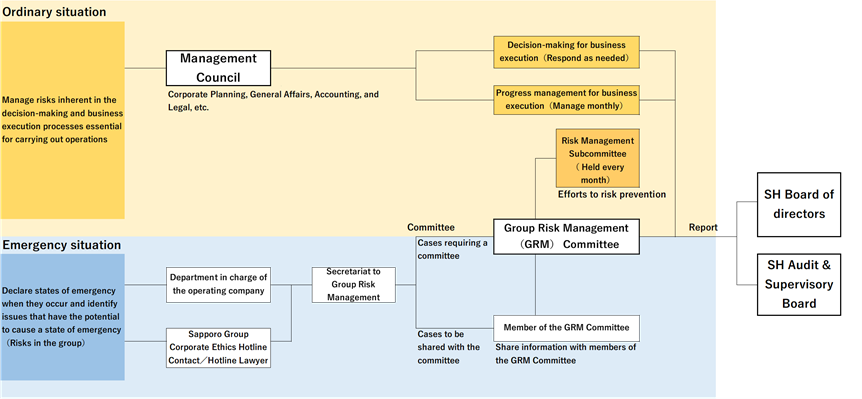
Management of the risks inherent in important decision making or business execution
As stipulated in Sapporo Holdings’ Rules for Management Council, Group Management Strategy Council, and Business Strategy Council, decisions on important issues related to management in general and to business execution by group companies first undergo a review in the Management Council, discussion in the Group Management Strategy Council or the like, and are then made by Sapporo Holdings President and CEO. The business execution status of each operating company is also assessed through the Group Management Strategy Council and Business Strategy Council.
Note that risks are assessed and analyzed in these processes as explained below to manage the risk of loss.
- Before a decision is made on an individual item being reviewed, Sapporo Holdings’ management departments analyze the potential risks and other factors.
- The risks in the execution status of each operating company is managed using monthly forecasts
- For Sapporo Holdings’ decision/approvals and items that operating companies must report as required by the rules, Sapporo Holdings management departments analyze the potential risks.
Crisis management
If an emergency situation occurs or a fact is discovered that might lead to an emergency situation, the GRM Committee, in cooperation with as well as risk management organizations of operating companies and subsidiaries, considers countermeasures including information disclosure and handles the crisis quickly and appropriately.
Additionally, the statuses of important issues, such as those reviewed by each company’s risk management organization (e.g., risk management committee), are summarized and reported to the GRM Committee.
Number of cases handled by each company’s risk management organization
| FY 2019 | FY 2020 | FY 2021 | FY 2022 | FY 2023 | |
|---|---|---|---|---|---|
| Product/quality-related accidents and recalls | 1 | 0 | 0 | 0 | 0 |
| Environmental law violation | 0 | 0 | 0 | 0 | 0 |
| Serious wrongdoing by employee* | 0 | 0 | 0 | 0 | 0 |
* Serious wrongdoing refers to serious compliance violations such as bribery and graft
Operational risks, etc
Described below are risks that may affect Sapporo Group’s operating results and financial conditions (including the stock price). Note that the future matters described in the text are based on a judgment made by Sapporo Group as of December 31, 2023.
1. Changes in the economic climate and demographics
Changes in global economic conditions could lead to a downturn in the economy, resulting in fluctuations in shipments of key products and a decline in the value of assets held by the Group, and if competitive relationships further intensify, the Group's performance and financial position could be adversely affected.
In addition, in order to create an environment in which a diverse range of human resources can play an active role, the Group is promoting measures to create an environment of diversity and inclusion, as well as measures to improve work and engagement. However, if we are unable to secure sufficient human resources for our business activities due to shrinking demand resulting from Japan's declining birthrate and aging population, intensifying competition in the hiring of employees, the increasing mobility of human resources, or a shortage of human resources due to a decline in productivity caused by a deteriorating work environment or an increase in retirements, our Group's performance and financial position could be adversely affected. This could have a negative impact on the Group's performance and financial position.
2. Risks due to climate change
Based on the Sapporo Group Environmental Vision 2050, the Group is promoting initiatives to realize the key sustainability issues in line with the newly formulated medium-term management plan: “harmony with the environment,” “co-prosperity with society,” “success of human resources,” “promotion of responsible drinking,” and “provision of safe products and facilities.” We have also supported the recommendations of the Task Force on Climate-related Financial Disclosures (TCFD) since May 2019. We will continue to work on information disclosure based on the TCFD's recommendations while further strengthening its activities related to environmental conservation.
However, if we are unable to secure major raw materials or necessary water resources due to climate change in the future, we may incur opportunity losses due to shutdown, which may adversely affect our business performance and financial condition.
3. Impact of regulatory requirements
The Sapporo Group is subject to various legal regulations, including the Liquor Tax Law, the Food Sanitation Act, the Product Liability Act, labor-related regulations, bribery regulations, the Competition Law, the General Data Protection Regulation (GDPR) and other personal information protection regulations, and environmental laws/regulations. It is also subject to the laws and regulations of each country in which the Group does business. Against this backdrop, we are doing our best to preserve our rights through legal procedures. However, new laws and regulations may be enacted in the future, and if the Group becomes subject to these laws and regulations, our business activities may be restricted or new expenses may be incurred, which may adversely affect our financial results and financial conditions. For example, an increase in the liquor tax or consumption tax may reduce demand, and if more restrictions are placed on advertisements for liquors including beer and low-malt beer, liquor stores’ operating hours, and liquor-selling locations, it may result in situations such as a decline in demand or new expenses for complying with new regulations.
4. Overreliance on a certain business field
At the Sapporo Group, our alcoholic beverage business accounts for approximately 70% of our revenues, and the majority of these revenues come from the Japanese market.
In order to further expand profitability, we are reviewing our business portfolio from time to time and expanding our business activities in overseas markets.
Nevertheless, we remain highly dependent on our domestic alcoholic beverage business. With demand in the domestic market shrinking, if factors such as price competition with other companies, the phased changes in liquor tax being implemented from 2020, changes in consumer taste, rising costs of raw materials, materials, and energy, an unseasonably cool summer, and a prolonged rainy season lead to decreased sales, our business performance and financial condition might be adversely affected.
5. Overseas business activities
The Sapporo Group is working to increase profit by expanding our business activities in overseas markets, and our alcoholic beverage businessis is focusing especially on the U.S. and Canada.
In Asia, the Group is engaged in beverage business activities in Malaysia, the Middle East, and other countries, starting with Singapore. In Vietnam, we sell beer produced at our Long An plant in the country and also export beer.
We strive to implement appropriate management and support for business operations based on the local business environment in close cooperation with our overseas subsidiaries engaged in business activities, while also working to improve our business management and risk management systems.
However, these overseas business activities of the Group might adversely affect our business performance and financial condition due to factors such as changes in the laws related to investment, trade, tariff, and foreign exchange; differences in business practices; labor-management relations; regional conflicts; terrorism; communicable diseases; and other political, societal, and economic turmoil, in addition to changes in economic conditions, changes in the competitive environment, and fluctuations in the foreign exchange rate.
6. Impact of R&D innovation
The Sapporo Group continuously conducts research and development and product proposals based on "palatability" and "health benefits" that can propose value in response to changing customer needs and lifestyles.
However, if unforeseeable changes in the business environment occur due to changes in consumer preferences, technological innovation, legal revisions, and other factors, and our competitive position in the market decreases, our business performance and financial condition might be adversely affected.
7. Food safety
The Sapporo Group has positioned the provision of safe products to customers as a top priority, and has been strengthening our initiatives toward establishing a quality assurance structure such as maintaining mechanisms for risk management and risk communication and conducting awareness-raising activities and training programs for the relevant departments and divisions of our group companies.
However, if a quality problem unique to our group or one related to general products, raw materials, and labeling problems affecting the entire society occurs, a product recall, shipment of defective products, or product liability claims might occur.
In the restaurant business, if food poisoning occurs, we might be ordered to suspend operations for a certain period of time, which may adversely affect our financial results and financial conditions.
8. Safety of subcontractor-manufactured products and procured products
Some of the Sapporo Group’s products are manufactured by outside subcontractors. We also sell procured products. We take all necessary steps to ensure the quality of subcontractor-manufactured and procured products thorough audits, and other measures. However, if a quality problem that is beyond the control of the Group occurs, we may have to suspend sales or recall products, which may adversely affect our financial results and financial conditions.
9. Procurement and Pricing of Raw Materials
The prices of the main raw materials and other supplies the Sapporo Group uses fluctuate according to the commodity market, and foreign exchange market conditions. Ongoing regional conflicts can also negatively impact global supply chains.
We are taking various measures, such as strengthening information gathering on the latest market conditions, dispersing and diversification of suppliers, maintaining reasonable inventory levels, and exchange contracts.
However, the prices of these raw materials and other supplies may surge, and this may force a rise in selling prices, which may adversely affect our financial results and financial conditions.
10. Risks related to supply chain
The supply chain is an important function in the manufacturing and sales industry of alcoholic beverages and food products, in which the Sapporo Group is mainly doing business. In the domestic logistics environment, the shortage of truck drivers and cargo handling workers is expected to grow due to the increase in e-commerce, in addition to a workforce decline due to the declining birthrate and aging population, and the impact of overtime work limit restrictions, etc. in the workstyle reform-related laws. Although it is essential that we secure the necessary logistics functions at an appropriate cost to maintain stable business development, our business performance and financial condition may be adversely affected due to cost increases and functional decline in the entire supply chain. In the event of human rights violations, environmental destruction, or other problems in the supply chain, the Group may not be able to maintain a stable supply chain, which could adversely affect the Group's performance and financial position.
11. Business and capital tie-up
As part of our efforts to strengthen our competitiveness toward growth, the Sapporo Group may implement business and capital tie-ups with other companies in Japan and overseas.
In such cases, we conduct detailed due diligence on the financial condition and contractual relationships of the target company and make every effort to avoid possible future losses to the greatest extent possible.
However, depending on changes in the market environment or business environment, the results originally assumed may not be achieved. And in some cases, if the business, management, and assets of a partner or invested company deteriorate, the Group's business performance and financial condition may be adversely affected.
12. Alcohol-related problems
Regarding alcohol-related issues, the World Health Organization (WHO) adopted the Global Strategy to Reduce the Harmful Use of Alcohol in 2010. In Japan, the Basic Law on Measures to Prevent Damage to Health Due to Alcohol was enacted in 2014, and the negative effects of excessive alcohol consumption on health and social aspects have been pointed out. In the future, further tightening of regulations worldwide is expected, and consumer demand for alcohol may shrink as people become more health-conscious, which may adversely affect the Group's performance and financial position.
The Sapporo Group conducts preliminary screening of advertising displays, expressions, and sales promotion plans involving alcohol-related issues in accordance with its voluntary guidelines by several departments to prevent inappropriate advertisements, etc. The Group is also working with the Brewers Association of Japan and other organizations to gather information and implement the Promotion of Responsible Drinking program to eliminate inappropriate drinking, including “drinking under the age of 20,” “drunk driving,” and “drinking during pregnancy and childbirth.”
13. Fixed asset impairment
The Sapporo Group uses the impairment accounting principle.
We always make investments carefully in acquisitions, mergers, and capital expenditures that are important and contribute to the improvement of corporate value, in consideration of the business environment and profitability of such investments.
However, in the future, if the fixed assets owned by the Group and the goodwill acquired through corporate mergers are impaired due to declining profitability or plummeting market prices caused by significant deterioration in the business environment, the Group’s business performance and financial condition may be adversely affected.
14. Financial liabilities
The Sapporo Group obtains much of the funds needed for various businesses by issuing bonds or borrowing from financial institutions, and is exposed to financial market risks. We raise the funds needed after comprehensively taking into consideration diversification of funding sources, appropriate borrowing periods, and the interest rate environment, etc.
However, by making large-scale investments in the course of executing a growth strategy, the Group’s financial liabilities might grow further. Additionally, if the market interest rate increases or the Group is downgraded by a rating agency in the future, our interest burden may increase or fund-raising conditions may worsen, adversely affecting the Group’s financial results and financial conditions.
15. Retirement benefit obligation
The Sapporo Group’s employee retirement benefit expenses and obligations are calculated based on the preconditions set for mathematical calculation, such as a discount rate.
We have assigned appropriate human resources to the corporate pension fund and monitored its investment status as appropriate.
However, if there are major changes in the preconditions, such as fluctuations in the fair value of plan assets, interest rate fluctuations, fluctuations in pension assets, they may significantly affect the Group’s business performance and financial condition.
16. Risk from the occurrence of natural disasters
The Sapporo Group owns business sites in Japan and overseas. We are engaged in continual efforts to mitigate the effects of natural disasters and to ensure business continuity should such situations arise. However, should earthquakes, wind and flood damage, or landslides that far exceed our expectations occur due to large-scale natural disasters or secondary disasters, then the properties and facilities we own may be damaged. A temporary cessation of business and confusion in our distribution networks may result in disruption to our product supply, and if these result in situations such as opportunity losses or losses from the disposal of products, our financial results and financial conditions may be adversely affected.
17. Risk of infectious diseases, etc.
Regarding the response to the spread of infectious diseases, etc., the Sapporo Group, as a company involved in the production of alcoholic beverages and food/beverage products as well as in food service, continues production and distribution services at its business sites in Japan and overseas while taking measures to reduce the infectious risk, in order to fulfill its responsibility to supply products to customers. In addition, the Group is continuing efforts to prevent infections in commercial complexes and office buildings managed and operated in its real estate business.
If economic conditions worsen due to an epidemic or spread of infectious diseases, etc., the Group's performance and financial position could be adversely affected by soaring raw ingredient and material costs, declining consumption due to restrictions on going out, stagnation in the food service industry, and sluggish demand for commercial products, and other factors.
18. Risks in corporate governance
Under the holding company structure, the Sapporo Holdings is striving to strengthen operational supervisory functions within the Group and to develop and operate internal controls in each Group company. However, if corporate governance or internal controls within the Group become dysfunctional, the Group's performance and financial condition may be adversely affected.
19. Risks related to compliance
The Sapporo Group strives to prevent the occurrence of compliance violations through awareness-raising activities for employees and the strengthening of internal controls. However, if any act that violates laws, regulations, or social demands, such as fraud, criminal acts, and bribery, occurs within the Group, the Group' s business performance and financial condition may be adversely affected. In addition, the company's brand and credibility may also have a negative impact if this is criticized on various media and social networking sites.
20. Risk of lawsuits and penalties
The Sapporo Group is striving to reduce the various types of legal violations by promoting compliance through employee education and training when carrying out our business. However, in the course of carrying out our business in Japan and overseas, the Group may be sued or assessed a penalty for problems related to the Product Liability Law, Intellectual Property Act, Tax Law, or other laws regardless of whether a legal violation has been committed by a company within the Group or its employee. Furthermore, depending on the situation in which a lawsuit is filed or the outcome of the lawsuit, the Group’s business performance and financial condition may be adversely affected.
21. Information security
The Sapporo Group has various systems for business operations and handles a great deal of important information. We have established a multilayered defense and monitoring system to protect against external attacks, and we have also striven to build an appropriate management system for information systems by educating and training our employees through targeted atack email training. However, if any problem such as a falsification of important information or a leak of personal information is caused by a cyberattack, our business operations may be disrupted, which may adversely affect our group's financial results and financial conditions.
22. Credit risk of customers
The Sapporo Group is implementing measures to guard against the credit risk of customers and investments. However, if debt collection becomes impossible due to events such as unexpected bankruptcy, our business performance and financial condition may be adversely affected.
Risk Management Structure of Overseas Operating Companies
The Sapporo Group Corporate Code of Conduct has been translated into English and efforts are being made to disseminate it fully to all overseas subsidiaries and their affiliated companies.
Additionally, we have built a structure that can take quick and appropriate actions based on the Sapporo Group Crisis Management Rules, if an emergency situation occurs or a fact is discovered that might lead to an emergency situation.
*Reference: From the English version of the Sapporo Group Corporate Code of Conduct (the beginning part excerpted)
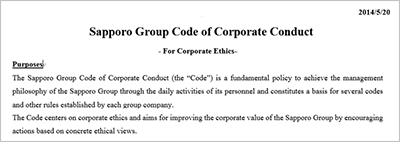
Handling of Quality Risks
As part of our mission of a food company, we give highest priority to providing safe products to our customers. We are strengthening our system for eliminating quality risks, by for example providing awareness-raising classes and seminars on risk management and risk communication to all related departments and sections of Group companies.
(1) If a notification or consultation related to a significant food safety or quality assurance issue is received from a customer, employee, or other party, except for insignificant issues, the quality assurance section of the involved operating company discusses corrective measures in its crisis management organization (such as a risk management committee) and after investigating the facts, reports the results to the Quality Assurance Department of Sapporo Breweries, which is in charge of the Group’s quality assurance operations. The Quality Assurance Department of Sapporo Breweries reports the content of what has been reported by the operating company to the Secretariat to the GRM Committee.
(2) For quality assurance issues related to food safety, it is extremely important to take rapid and appropriate countermeasures at the early stage of occurrence and to quickly implement them in other departments within the group, as well. Therefore, if an issue is suspected to be serious, the quality assurance section of the operating company must report the issue directly to the Quality Assurance Department of Sapporo Breweries without going through its crisis management organization. When product recalls occur, the Quality Assurance Department of Sapporo Breweries swiftly briefs the GRM Committee chairperson or acting chairperson, full-time members of the Audit & Supervisory Board, and the secretariat to the GRM Committee; at the same time, the department seeks to gain an understanding of the operating conditions at the operating company concerned, and provide support to all Group companies that require it.
Handling of Information Leak Risks
In accordance with the Sapporo Group Corporate Code of Conduct, the Sapporo Group is carrying out proper and secure management of its trade secrets, which are the Group’s assets.
Trade Secret Management Promotion Structure
To oversee and promote the trade secret management activities of the entire Sapporo Group, we are planning to set up the Group Information Protection Committee. We will also set up a promotion secretariat at each operating company in order to promote cross-departmental trade secret management.
Handling of Accidents and Violations
If an accident or violation related to trade secret management occurs, the Sapporo Group will call a meeting of the Group Risk Management Committee and take appropriate actions, with priority given to customer protection and social responsibility
Trade Secret Management
The Sapporo Group considers trade secret management one of its business management tasks, and assesses its trade secrets to properly manage them. We also carry out employee education, as well as management activities such as handling of information security accidents or violations, in order to solidly establish information security management for trade secrets within our organization.
Safety Management of Physical Environment
We have established necessary management requirements, such as crime/disaster-prevention measures and access management/monitoring, for our buildings, offices, and other facilities, in order to ensure the safety of these facilities.
Security Management of Information Systems
To reliably protect and effectively utilize our digitized trade secrets, we have established security management requirements for information systems, including restricting access to electronic data and files, encryption of electronic data and files, and collection and monitoring of access history, as well as countermeasures against malicious programs, in order to ensure the security of our information systems.
Education
The Sapporo Group is continuing to provide education to ensure that everyone in the Group thoroughly understands our internal rules and knows how to handle and manage trade secrets.
Continuous Improvement
As part of continuous business management activities, we ensure that trade secret management is being reliably executed and that necessary improvements are being made.
Countermeasures Assuming Large-scale Disasters
The Sapporo Group has established the “Severe Disaster Response Rules”, specifying the basic policies we must follow and providing an overview of disaster countermeasures, and is continuously working on formulating a business continuity plan (BCP) in preparation for the occurrence of a severe disaster.
-
Group Disaster Response Headquarters: The following matters are addressed as an initial response to a disaster.
① Confirm the safety of Group employees and grasp the damage situation.
② Grasp the extent of damage of Group sites and buildings.
③ Share the information of ① and ② within the Group.
Group companies will make judgments as to whether or not to activate the BCP, and we will disclose the status of the BCP to the public as needed. - Group Risk Management Committee: After grasping the extent of damage caused by the disaster, the committee decides whether or not to activate the Group BCP and provides support in case Group companies activate their own BCP.
※ Severe disasters: Earthquakes with an intensity of at least 6 occurring in Japan and accompanying tsunamis. Alternatively, the disasters designated by the Director of the Group Disaster Response Headquarters.
Note that the formulated BCP is revised appropriately if necessary, based on the actions when a disaster occurs and the subsequent verifications.
1. Activities within the Group
①Maintenance of disaster prevention stockpiles
We maintain a stockpile of disaster reserves necessary for life during disasters, such as emergency food and portable toilets, at all Group sites, and advance efforts in accordance with the policies of each local governments and the business operations of our companies in the event of a disaster.
②Grasping and sharing information on the safety of Group employees and the damage situation (their family members and houses)
We share the information promptly using the Group's standard emergency contact and safety confirmation system (“Emergency Call” provided by Infocom Corporation).
③Grasping and sharing information on the damage situation of buildings and facilities at Group sites
We use a building status reporting system (“BCPortal” provided by Infocom Corporation) for the group to consolidate and share information on the damage situation of all group companies by having each site input its damage situation for buildings and facilities on the Web.
During normal times, training for entering data into both systems is carried out regularly so that we can take quick action in the event of a severe disaster, and we are also reviewing our operations.
2. Activities within communities
Sapporo Real Estate, which operates and manages Yebisu Garden Place, has a written agreement with Shibuya Ward for supporting people who are unable to go home during a disaster. Based on this agreement, a system is in place to accept people who have difficulty returning home at the Yebisu Garden Place site in the event of a large-scale earthquake, and in cooperation with Shibuya Ward, regular drills are held to accept people, including companies in the Yebisu area.
Other companies within the Group are also taking steps to contribute to society and their local communities, for example concluding written agreements with local governments, covering supply of goods following a disaster.
Taking into consideration their respective business characteristics, the Sapporo Group’s operating companies (Sapporo Breweries, POKKA SAPPORO Food & Beverage, Sapporo Lion, and Sapporo Real Estate ) are continually engaged in the formulation and modification of BCP.
Three basic policies related to severe disasters (from the Group’s Severe Disaster Response Rules)
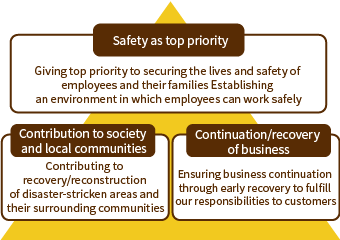
Group’s common emergency employee contact and safety confirmation system (Emergency Call)

Building status reporting system for bases (BCPortal)
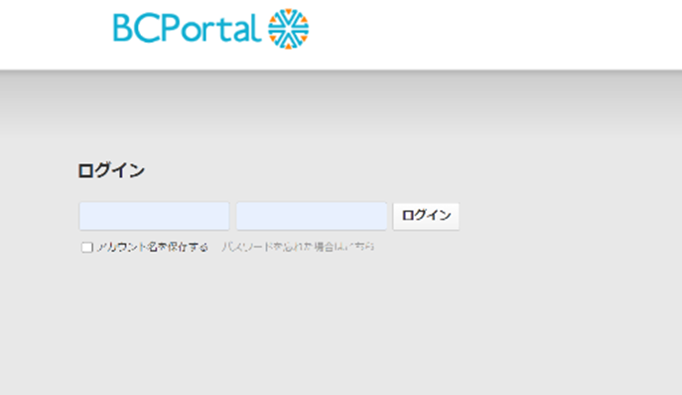
Handling of social networking systems (SNS)
The Sapporo Group recognizes that if an employee posts an inappropriate comment on the Internet, such as on an SNS, or if information disclosed by a corporation or its handling of customers is improper, the resulting bad reputation can spread widely through the Internet community and ultimately lead to a serious loss of trust of our stakeholders. Therefore, the Group educates its employees on personal use of SNS and has also built a structure that can take proper countermeasures, for example through monitoring information on the web.
-
Education of Group employees
We are trying to ensure that our employees adhere to the following rules when using an SNS:
(1) Only deal with public information
(2) Post comments or submit information at your own responsibility.
(3) Post comments that are transparent and do not post comments that could be perceived as slandering by other companies or people.
(4) Respect your own and others’ privacy.
(5) Do not use SNS for personal matters during working hours. -
Internet-monitoring structure
We have set up a dedicated team in Sapporo Holding’s General Affairs Department that monitors the content of Group-related information posted on the Internet.
We also have a subcontractor carry out monitoring during week nights and weekends.
We have built a structure that enables sharing of information among the relevant departments/personnel so that appropriate countermeasures can be taken should any incident occur in which Group-related information is spread or goes viral.
- Basic Policy and Structure
-
Risk Management
- Promoting Compliance




